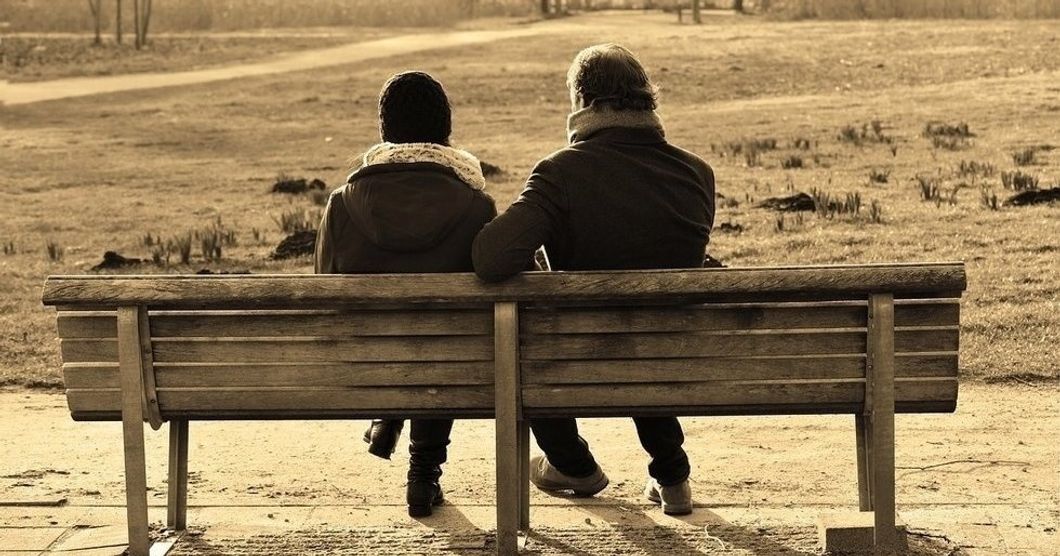It's been proven time and time again that to be vulnerable, to open up, and to share our difficulties with others, is positive. Certainly it is good for us: rather than allowing our feelings to grow and fester in an emotional space that cannot easily contain them, we actively work through our troubles and ease the burden that privacy can make heavier. Additionally, relationships grow as a result of mutual profound honesty and trust with the feelings we have trouble addressing alone.
It is this last point that has, I think, inspired the push for pressured vulnerability. I was at a workshop recently that introduced an activity to open people up by putting us into small groups and having us answer questions that got progressively "deeper." I loved the exercise; it was wonderful to have the opportunity to share a space of such personal trust. But I also found that, when certain questions arose, I avoided allowing my turn to come. If it did, I could not decide whether I should make myself uncomfortable by sharing things I did not even choose to disclose to friends, or if I should diminish the others' vulnerabilities and the exercise itself by lying.
A culture of shared vulnerability is the best one we can hope for. Real communities are founded on such warm welcome for people with their burdens. It's become increasingly obvious that a lack of understanding of others, feelings of isolation, and the seemingly-required emotional denial and hiding are the root of most of the issues facing humanity. This is why I love workshops and dialogues like these.
But as we work for this ideal world of openness, let us keep in mind individuals' needs in time. Simply put, if someone is not ready to talk about something, they're not ready to talk about it. Sometimes people do need to reflect and work through their difficulties on their own before they become ready to approach others. Our goal should not be to pull stories from people who aren't ready to tell them, but rather to make our support for them as they heal clear. We should let people know that they can talk with us, when they're ready, and that regardless, we'll be there for them.
I'd like to add a quick commentary here about recent responses to the people who have opened up about their stories of sexual assault. Too often, the public has insisted that survivors "should have said something sooner" if it was an issue. I can't even begin to iterate how problematic that is. There are a multitude of reasons why survivors don't immediately share their stories. I most definitely want survivors to feel comfortable not only reporting but sharing with loved ones or, if necessary, the public. But they are allowed to go at their own pace. If survivors are not ready to share, that is absolutely okay.
A world of universal vulnerability is an ideal one. But we can't all be there right away. Our perfect society should be a patient and understanding one, too.






















